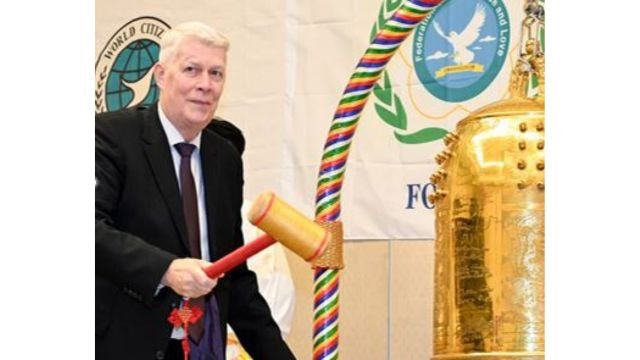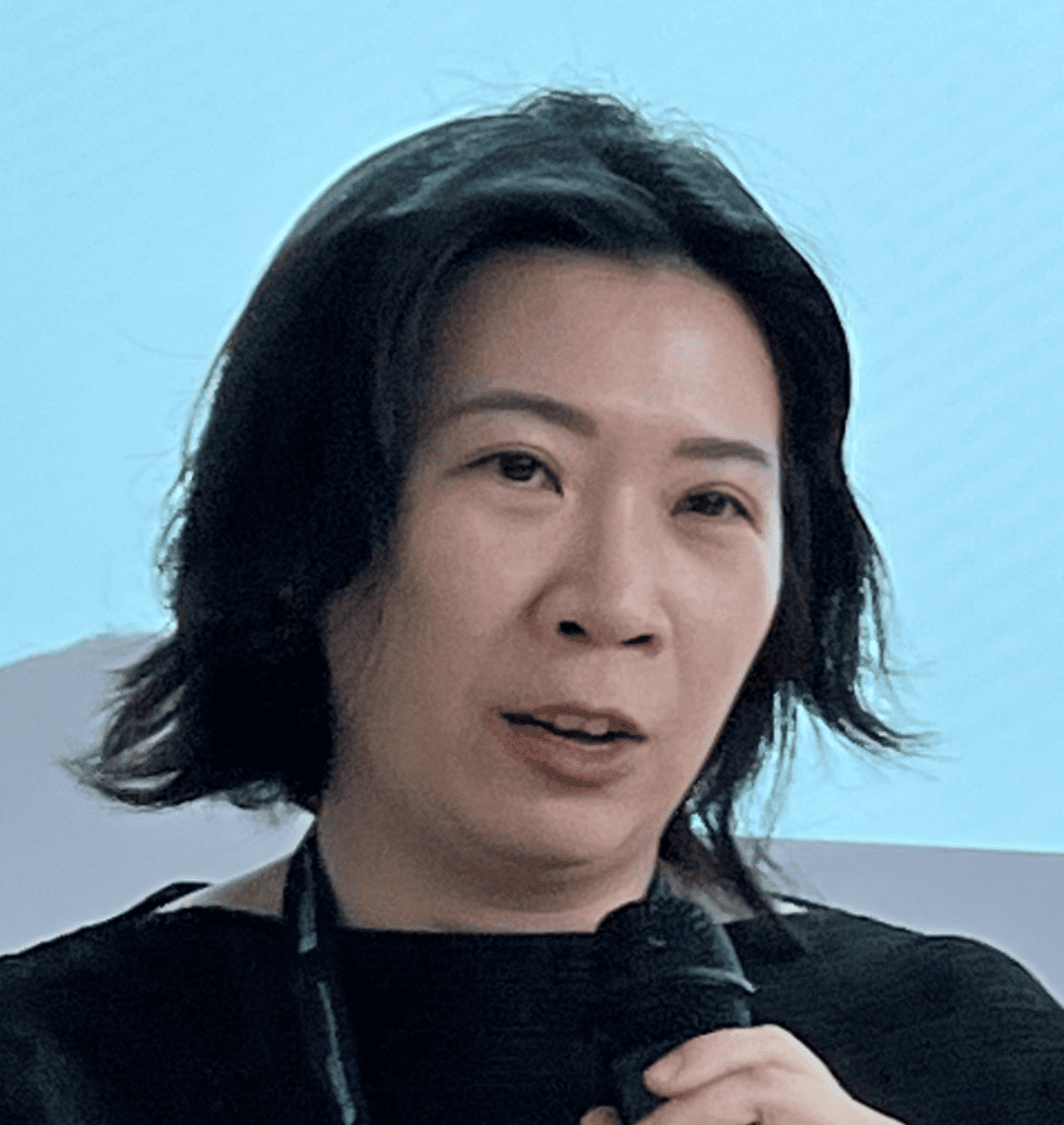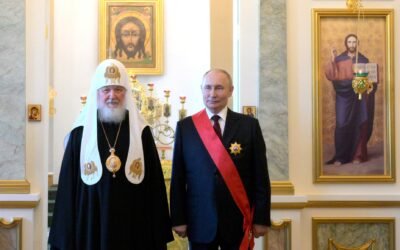Tai Ji Men’s positive contribution to the international image of Taiwan has been highly significant. Yet, it has continued to be harassed through ill-founded tax bills.
by Liu Yin-Chun*
*A paper presented at the international conference “Nation Building and Cultural Diversity in East Asia: Challenges, Narratives, Perspectives,” Vytautas Magnus University, Kaunas, Lithuania, October 18–19, 2024.
Article 1 of 2.

I will introduce you to Tai Ji Men and try to shed light on a significant legal case that has captured global attention. The Tai Ji Men case, rooted in Taiwan, has far-reaching implications not only for those directly involved but also for Taiwan’s commitment to human rights, religious freedom, and the rule of law within its legal and economic systems. Mine is an emic view, as I am myself a Tai Ji Men dizi (disciple). At the same time, I have an academic background in Literature, Interculturality, and Slavic Studies, and am currently running a biotechnology company. Mine will thus be an intercultural, legal, and economic analysis of the Tai Ji Men case.
Table of Contents
Introduction to Tai Ji Men
First and foremost, let me introduce Tai Ji Men. Understanding Tai Ji Men is essential to grasping the depth of this case and why it has had such a profound impact on Taiwan’s legal, economic, and social landscape.
The Energy Family
Tai Ji Men is an ancient “menpai” (a term akin to “school”) of martial arts, qigong, and self-cultivation. Dr. Hong Tao-Tze legally incorporated the Tai Ji Men Qigong Academy in Taiwan in 1966. Dr. Hong is the Zhang-men-ren (leader) of Tai Ji Men, also known as its Shifu (Grand Master). Tai Ji Men’s teachings are deeply rooted in ancient Taoist philosophy and passed down from Shifu to dizi (disciples) through generations. The bond between Shifu and dizi is more than just teacher and student—it is a relationship akin to that of father and son.
Becoming a Tai Ji Men dizi involves following traditional rituals and committing to lifelong learning under the guidance of their Shifu. In return, as a symbol of their gratitude, dizi offer a “red envelope” containing a monetary gift to their Shifu for the wisdom and teachings they receive.
Often referred to as “The Energy Family,” Tai Ji Men unites dizi from all walks of life around the world, from newborns to centenarians. Today, Tai Ji Men operates twenty-one academies across the globe.

Kungfu Beyond Body and Mind
Tai Ji Men’s Kungfu promotes holistic well-being by blending self-cultivation with qigong practices. Dizi learn not only physical Kungfu but also the philosophy of yin-yang balance and discover their purpose in life. Guided by Dr. Hong, Tai Ji Men dizi cultivate both body and mind through various practices, one of which is cultural performances. Tai Ji Men has participated in thousands of cultural performances worldwide, including ten times at Taiwan’s National Day celebrations. All four of Taiwan’s former presidents have praised Tai Ji Men for its positive contributions to society.
Culture of Peace with Love and Conscience
In Chinese, the character for “martial” emphasizes the goal of resolving conflict, not perpetuating it. This aligns with Tai Ji Men’s mission to spread peace. Tai Ji Men is self-funded, and its Shifu and dizi have travelled to 109 countries to promote a culture of peace with love and conscience, engaging in cultural exchanges, peace summits, and the Bell of Peace Ringing Ceremony. To date, 556 global leaders—including 71 heads of state and 9 Nobel Peace Prize laureates—have rung the Bell of Peace, affirming their commitment to world peace.

In 2014, Dr. Hong initiated the Movement of An Era of Conscience, which inspired the United Nations General Assembly to designate April 5th as the International Day of Conscience. Tai Ji Men also advocates for the World Day of the Power of Hope and World Prayer Day to encourage people to activate their conscience and foster hope for a better world.
In summary, Tai Ji Men is a historical Kungfu menpai dedicated to fostering individual well-being and global peace through love and conscience.
Case Background
1996: Taiwan’s Societal and Political Context
The Tai Ji Men case emerged in 1996, a pivotal year in Taiwan’s history. That year, Taiwan held its first direct presidential election, a democratic milestone, though it also led to heightened tensions with Mainland China, known as the Third Taiwan Strait Crisis. In November, two high-profile political murders exposed the deep connections between organized crime, corruption, and political power struggles.
In this charged atmosphere, many believe the ruling party Kuomintang (KMT) sought to divert public outrage by targeting religious and spiritual groups that didn’t support its political position. Tai Ji Men was one such target. Dr. Hong and his dizi were accused of tax evasion and fraud. Prosecutor Hou Kuan-Jen sensationally claimed Tai Ji Men was involved in “raising goblins,” falsely portraying it as a “cult.” The indictment also incorrectly classified Tai Ji Men as a cram school subject to corporate taxes rather than a nonprofit organization.
Prosecutor Hou Kuan-Jen’s Violations of Law
The Control Yuan, Taiwan’s independent governmental watchdog, conducted an investigation into Prosecutor Hou’s misconduct. In 2002, it issued a report detailing numerous legal violations, including breaches of investigation secrecy, illegal searches, asset freezes, and failure to adhere to judicial process. The report identified eight significant illegal actions and called on the Ministry of Justice to hold Hou accountable. It also confirmed that the indictment against Tai Ji Men was groundless and should not be used as the basis for taxation.

The Supreme Court’s Ruling
In 2007, Taiwan’s Supreme Court acquitted Dr. Hong and his co-defendants of all criminal charges, ruling there was no evidence of fraud or tax evasion. The court acknowledged that Tai Ji Men was a martial arts and spiritual organization, where Shifu received gifts from dizi out of gratitude, not as taxable income. The court further affirmed that Tai Ji Men was not a profit-making entity like a cram school.
Despite the acquittal, the National Taxation Bureau continued to pursue tax claims, leading to a drawn-out legal battle that has lasted for 28 years and continues to this day.

Liu Yin-Chun holds a M.Phil. in Literature, Interculturality, and Slavic Studies. She is currently running a biotechnology company in the Netherlands and is a Tai Ji Men dizi (disciple).



